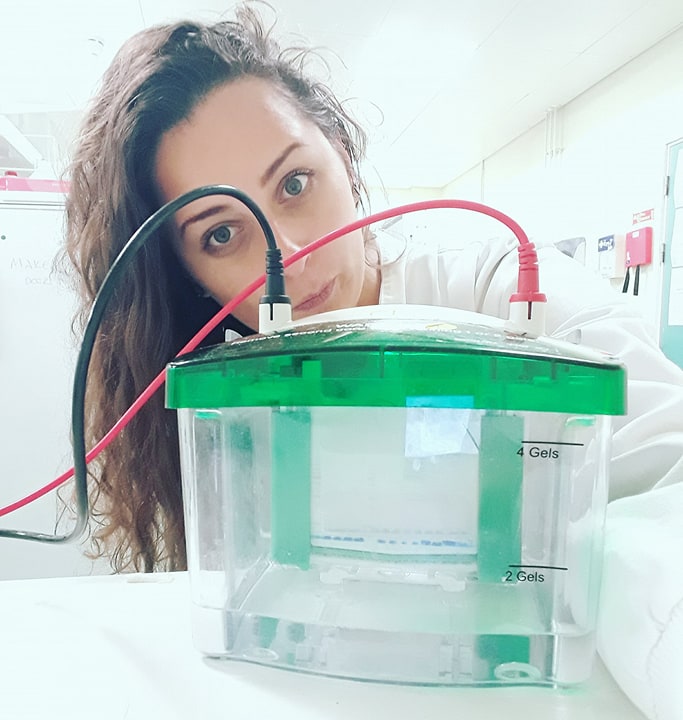
November 1, 2017, by Agata
6 time management tips for PhD students!
We all know that PhD is usually the very individual type of job and depends a lot on your own motivation and organizational skills. It is up to you how effectively you use the time you spend in the lab. Often nobody is going to organize your time during PhD and you need to figure out on your own how to stay productive.
Today, I want to share with you my 6 practical tips on time management I learned during my PhD ?
-
Use a calendar and have a schedule!
The good practice I found extremely helpful is having a calendar with tasks and aims I want to achieve during the entire month, week and day. This kind of calendar can have different forms. I personally created a table-calendar in Excel file where each sheet is dedicated for one month. I update this file on an everyday basis. Some people prefer to print out a monthly calendar and write manually what they need to do in the lab each day. A good tip for this practice is to put this printed sheet into a plastic sleeve and use a marker to write on the sleeve so you can easily delete and reschedule some tasks by just wiping it with a bit of ethanol.
Having my calendar has many advantages! It helps me to spot how effective I am every day, plan my experiments well in advance (especially when experiment takes more than two days to finish), to not forget about any started experiment (you know that, hm? ;D) and what the most important it helps me to stop postponing my tasks!
Another very necessary option is to include in your calendar your planned holidays! Seeing how many weeks/days you have left before leaving for holidays is incredible productivity booster! ?
-
Start your day with an easy task!
Updating your calendar at the end of each day also means that every day you will come to work with an already-created list of tasks for the day! In the morning, choose one easy and fast task to achieve, complete it and after you will feel you started the day in a productive way and it will bring you a positive energy for the rest of it! ?
-
Have some personal plans after work!
There is no better booster of your time management than having plans after work. If you know you need to leave office/lab at the certain time suddenly you productiveness increases significantly. PhD students without plans for the rest of the day very often tent to stay in the lab until very late hours, being tired and slow what may have very bad impact on their work-life balance and mental health. ☹
-
Multitask!
Multitasking is great (as long as you do not put too many tasks at the same time). We all know that lot of protocols have hours of incubations, cooling down, spinnings, freezings etc. Use these free 5, 15, 30 min of waiting in a productive way! Why not prepare some buffer that is running low, fill a couple of tip boxes or reply on that e-mail you postpone for a whole day? Ok, these are tasks for a couple of minutes. What if you have to wait for 1, 2, 3 h during the experiment? Here you go: why not start a new experiment or read an article or … wait for it… write a bit of your PhD thesis (try to start with materials and methods, you will be surprised how much you can write while waiting during incubations :D)! ?
-
Check the ‘real-time’ of completing your protocol!
I am sure you know this feeling: you just need to do that little ‘thing’ in the lab which will take you just 15 min … and after 45 min you realize you are not done with it yet? It is normal! Especially when you need to handle many samples. Tip for this: one day try to write down the time when you start a protocol and then write down the time you completed it. It will give you a ‘real-time’ you need to take to complete the protocol. In the future it will allow you to plan better your daily tasks without lying to yourself ‘I am done in 15 min’ ?
-
Use 2 min-rule!
A long time ago, during one of the workshops I learned this very simply 2-min method of time management: do not postpone any tasks which will take you less than 2 min to complete. What you should do is just completing it immediately when it appears. I practice this method almost all the time and I love it! Sometimes we get emails which really need a short reply but we tent to postpone it due to the trivial reasons. We are not aware that this behaviour slows down work of the person who sends us the email, as well as it can have a negative result for us. Moreover, multiple thinking about this 2-minute tasks is an unnecessary junk for our attention and takes more energy than is worth! Therefore, try to not postpone 2-min long tasks! ?
What are your tricks for better productivity? Please leave a comment! ?
No comments yet, fill out a comment to be the first

Leave a Reply